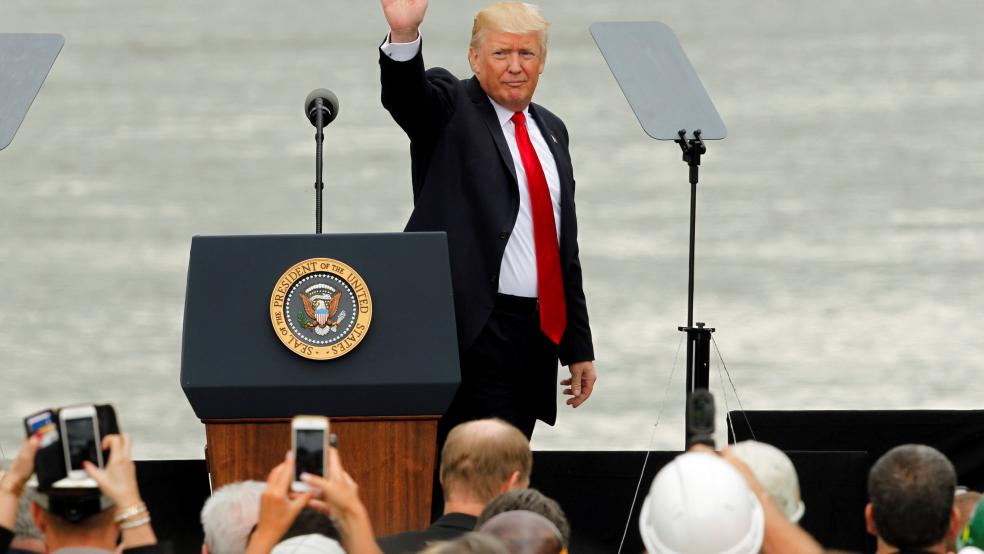WASHINGTON (Reuters) - President Donald Trump said on Tuesday there was "no reason" to curb law enforcement agencies that seize cash, vehicles and other assets of people suspected of crimes, a practice that some lawmakers and activists have criticized for denying legal rights.
The issue of civil asset forfeiture, created to disrupt the activities of organized crime groups, arose when sheriffs from around the United States told Trump at a White House meeting that they were under pressure to ease the practice."I'd like to look into that," Trump said. "There's no reason for that."In 2016, a group of Republican and Democratic lawmakers introduced a bill, which did not become law, that would have required the government to do more to show that seized property was connected to a crime. Critics have said suspects have few avenues to challenge the seizures and that forfeiture laws were sometimes abused. Police in some cases seize property from people who are never charged or convicted.Trump, a Republican, asked acting U.S. Attorney General Dana Boente, who was at the gathering, whether executive orders or legislation were needed to support forfeiture. Boente said that was unnecessary but law enforcement agencies needed encouragement.Trump voiced disagreement with lawmakers who want to change asset forfeiture laws, and some of the sheriffs laughed when Trump suggested he might want to "destroy" the career of one Texas legislator.He said members of the U.S. Congress would "get beat up really badly by the voters" if they interfered with law enforcement's activities.Later, Sheriff Harold Eavenson of Rockwall County, Texas, told Trump of his response to a state lawmaker who had introduced legislation requiring suspects first be convicted before assets could be seized."I told him that the cartel would build a monument to him in Mexico if he could get that legislation passed," Eavenson said."Who was the state senator?" Trump asked. "You want to give his name? We'll destroy his career," the president deadpanned, to laughter.Eavenson did not identify the lawmaker, but a Republican state senator has introduced similar legislation in Texas. The Texas Observer magazine reported that the bill had support from Republicans and Democrats. (Reporting by Emily Stephenson; Editing by Kevin Drawbaugh and Grant McCool)Trump questions lawmakers' efforts to curb asset seizures by police

STEPHANIE KEITH



